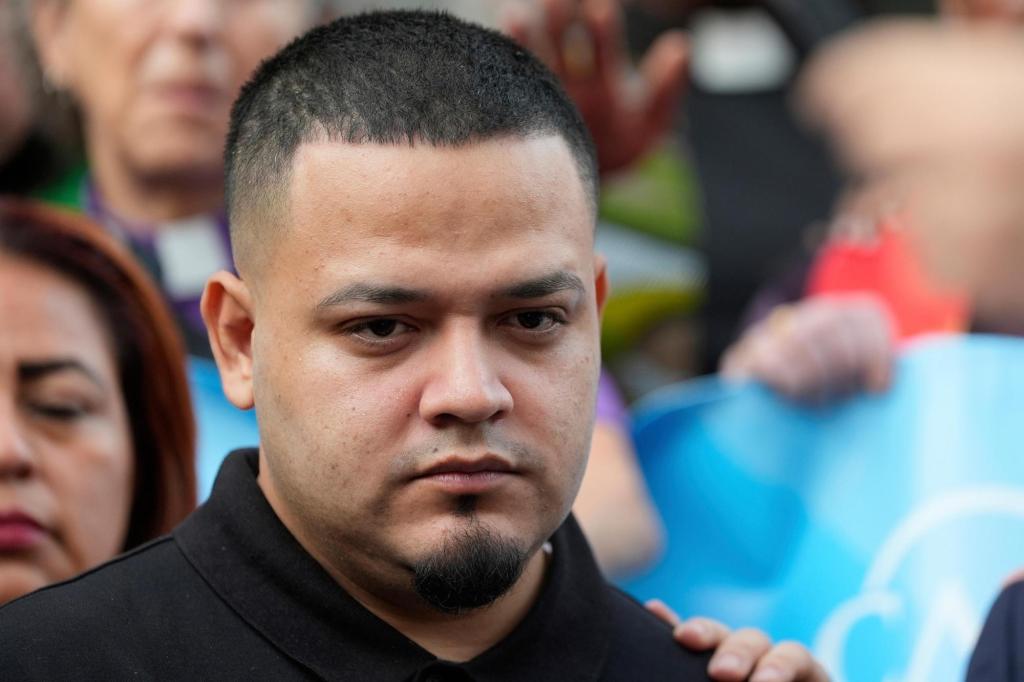Kilmar Abrego Garcia’s impending deportation to Liberia has ignited intense debate surrounding U.S. immigration policies, particularly under the Trump administration. Imagine facing the threat of being sent to a country where you have no ties, especially when you’ve built a life in the United States. The complexities of Abrego Garcia’s situation highlight not only the personal struggles of individuals but also the broader implications of immigration enforcement in America. This article delves into his case, the legal battles involved, and the larger context surrounding immigration policies today.
Understanding Kilmar Abrego Garcia’s Situation
Abrego Garcia, originally from El Salvador, has been at the center of a legal storm since his initial deportation to El Salvador was deemed a mistake. After being sent back, he was allowed to return to the U.S. following a Supreme Court ruling. Yet, the U.S. government is now eyeing Liberia as his next destination. Why Liberia? According to a recent filing from the Department of Homeland Security, the country is portrayed as a “thriving democracy” with English as its official language, and a commitment to human rights. However, many argue that this characterization ignores the realities of his situation.
The Legal Battle Unfolds
Abrego Garcia’s legal team has been vocal against the government’s actions. They argue that the deportation process is being weaponized to punish him for past mistakes made by authorities. His attorney, Simon Sandoval-Moshenberg, emphasizes that his client has no connections to Liberia, and that sending him there would create unnecessary hardship. Moreover, they have pointed out that Costa Rica has offered to accept him as a refugee—a more humane solution that the government seems to overlook.
Personal Stakes: Family and Future
Abrego Garcia has built a life in Maryland, where he has an American wife and child. His ties to the community are strong, yet he faces the grim reality of deportation. He has been granted protection from being sent back to El Salvador, where he faces threats from gangs. This raises the question: What does it mean for a person to be uprooted from their home after years of building a life?
Challenges Ahead: Criminal Charges and Asylum
In addition to his immigration woes, Abrego Garcia is facing criminal charges related to human smuggling in Tennessee. He has pleaded not guilty and is fighting the charges, claiming that the prosecution is retaliatory in nature. This situation complicates his fight for asylum, as he navigates both the legal and emotional toll of his circumstances.
The Broader Implications of Immigration Policy
Abrego Garcia’s case serves as a microcosm of the larger issues plaguing U.S. immigration policy. It raises critical questions about the fairness and humanity of deportation practices. While the government often emphasizes national security, stories like Abrego Garcia’s remind us of the human lives affected by these decisions. Not only does this case shine a light on individual suffering, but it also calls for a reevaluation of how immigration policies are implemented and enforced.
A Call for Compassionate Solutions
As discussions around immigration continue, many advocates are urging for more compassionate approaches. They argue that the focus should be on rehabilitation and support rather than punishment. By considering the needs and rights of individuals like Abrego Garcia, we can begin to foster a more just system that reflects the values of humanity and compassion that many believe should guide immigration policies.
Abrego Garcia’s story is not just about one individual; it’s about the countless lives affected by the maze of immigration law. As his case unfolds, it’s crucial to keep a close eye on the implications it holds for future immigration policies and the lives entangled within them.





















